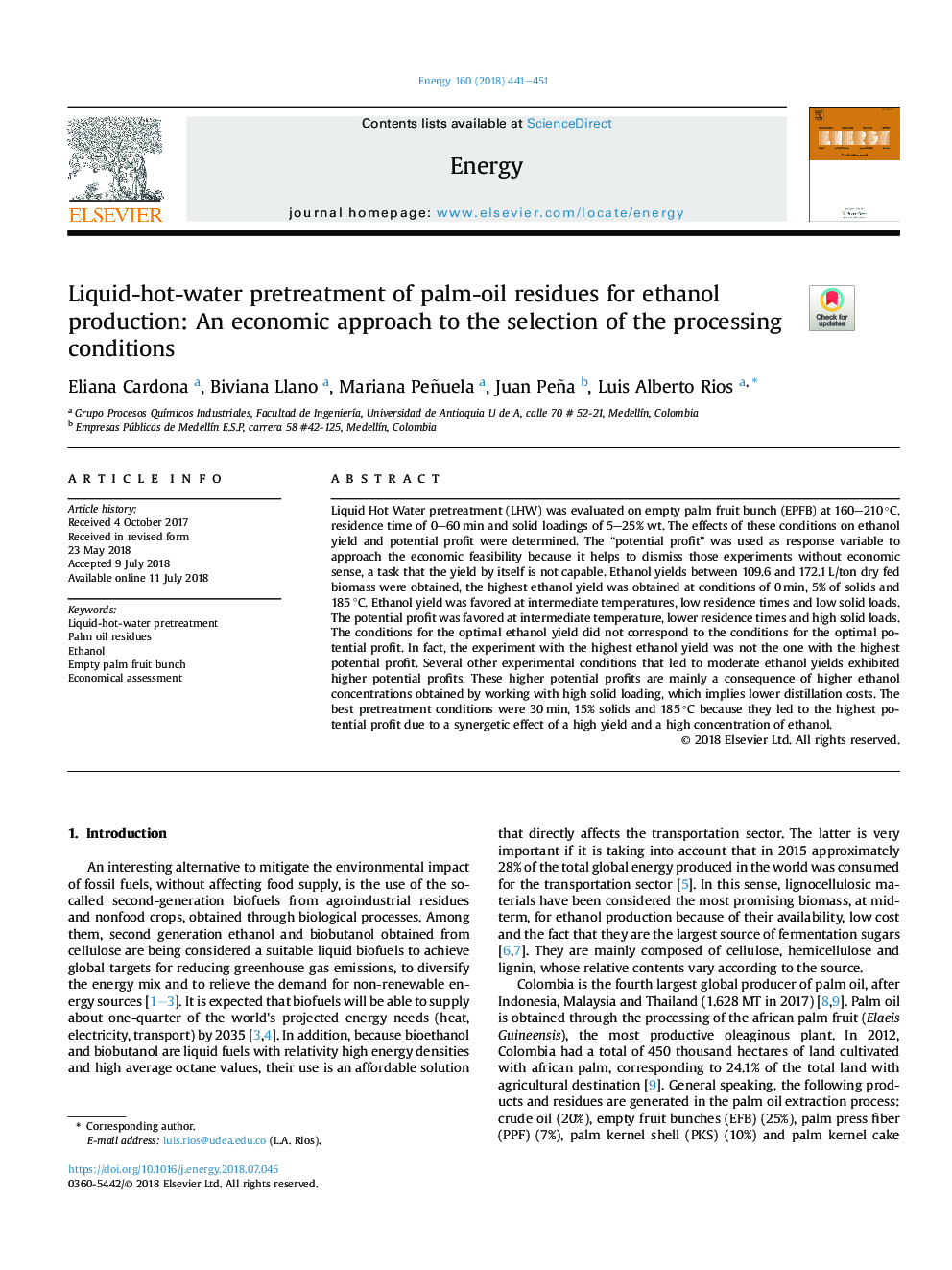| Article ID | Journal | Published Year | Pages | File Type |
|---|---|---|---|---|
| 8070963 | Energy | 2018 | 11 Pages |
Abstract
Liquid Hot Water pretreatment (LHW) was evaluated on empty palm fruit bunch (EPFB) at 160-210â¯Â°C, residence time of 0-60â¯min and solid loadings of 5-25% wt. The effects of these conditions on ethanol yield and potential profit were determined. The “potential profit” was used as response variable to approach the economic feasibility because it helps to dismiss those experiments without economic sense, a task that the yield by itself is not capable. Ethanol yields between 109.6 and 172.1â¯L/ton dry fed biomass were obtained, the highest ethanol yield was obtained at conditions of 0â¯min, 5% of solids and 185â¯Â°C. Ethanol yield was favored at intermediate temperatures, low residence times and low solid loads. The potential profit was favored at intermediate temperature, lower residence times and high solid loads. The conditions for the optimal ethanol yield did not correspond to the conditions for the optimal potential profit. In fact, the experiment with the highest ethanol yield was not the one with the highest potential profit. Several other experimental conditions that led to moderate ethanol yields exhibited higher potential profits. These higher potential profits are mainly a consequence of higher ethanol concentrations obtained by working with high solid loading, which implies lower distillation costs. The best pretreatment conditions were 30â¯min, 15% solids and 185â¯Â°C because they led to the highest potential profit due to a synergetic effect of a high yield and a high concentration of ethanol.
Related Topics
Physical Sciences and Engineering
Energy
Energy (General)
Authors
Eliana Cardona, Biviana Llano, Mariana Peñuela, Juan Peña, Luis Alberto Rios,
